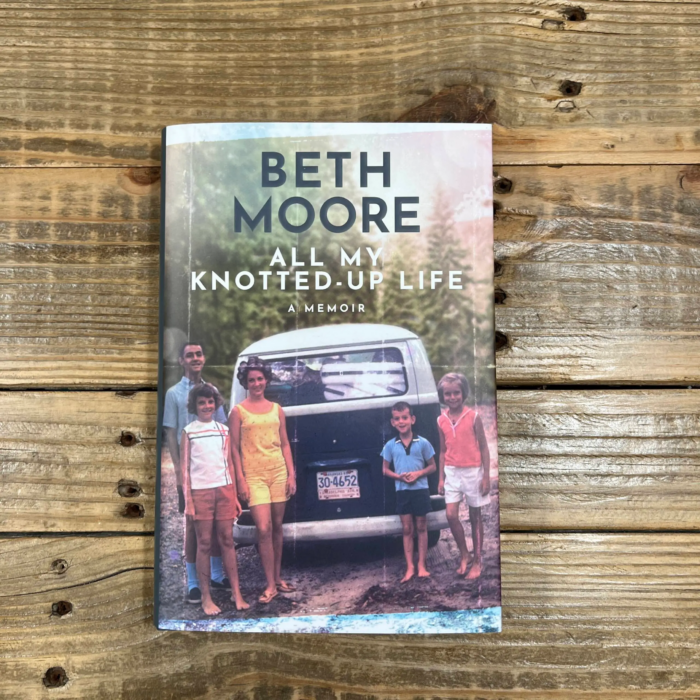
3 Book Recommendations for Ministry Leaders
I am here to commend to you three new ministry resources that belong on your reading (or listening) list. All three are available on Audible and read by the authors themselves:
Releasing today:

Tell Her Story: How Women Led, Taught, and Ministered in the Early Church (IVP Academic), by Nijay Gupta
Matthew. Mark. Luke. John. Jesus. Paul. When most of us learn about the early church, we hear stories of prominent men. But ample evidence exists in the New Testament that women were actively involved on the front lines of the gospel mission, too. And not just baking cookies. They were respected leaders. Mary Magdalene supported Jesus and the male disciples from her income (Luke 8:1-2). Nympha led a house church (Col. 4:15). And Phoebe was a deacon and benefactor (Rom. 16:1).
Northern Seminary New Testament professor Nijay Gupta brings these women—and many more—out of the shadows as he shines light on their contributions. Before reading Tell Her Story, I had never imagined Junia the apostle in jail (see Rom. 16:7), nor considered how dangerous it would have been for her to suffer for her faith in a dark, dank place where men and women coexisted without protection. Gupta brings out these details.
Last year I conducted an informal poll among my Twitter followers who went to seminary asking them if they’d ever studied the sixteenth chapter of Romans. Forty percent of them had never translated it nor heard a lecture or message on its contents. One person even took two separate classes on the Book of Romans in which students were never required to read Romans 16. In contrast, Gupta explores it. In depth. My favorite section of Tell Her Story is the work he has done here—exploring the multiple women named and described by Paul in this oft-overlooked chapter—boldly going where few men have gone before.
My friend Cynthia Hester recently reviewed this book on her blog. I was honored to be one of Tell Her Story‘s pre-publication endorsers, and yes, I read the book in its entirety. Here’s what I wrote:
In Tell Her Story Nijay Gupta brings to the topic of early Christian women (and some of their foremothers) a mastery of New Testament texts and backgrounds. Combining academic expertise with approachable prose, Gupta takes a fresh look at stories, people, and contexts—from judge Deborah leading Israel to deacon/patron Phoebe delivering “Romans” to apostle Junia doing prison time. In exploring the prominent place of women in the history of our faith, the author recovers lost meanings and casts a vision for men and women partnering to serve God’s people.
Get it.

Women and the Gender of God (Eerdmans), by Amy Peeler
Over the 22/23 winter school break, I cotaught a course in Italy with Dr. Lynn Cohick on Early Church Women in the Visual Record. That is, art. In the van returning to the Rome airport at the end of our sixteen days, I asked the students in the vehicle with me what they saw emphasized in churches that they don’t see emphasized in the US. They unanimously agreed that art of the Annunciation—the scene where Gabriel appears to the Virgin Mary to announce God’s plan for her to bear the Messiah—surprised them. It appeared in just about every church, sometimes twice. The scene pointed largely preliterate people to the incarnation. And we acknowledged that in our Protestant de-emphasis on Mary, we have lost something important.
Rev. Dr. Amy Peeler’s work Women and the Gender of God helps readers recover some of what we’ve lost.
Does God like men more than women? Of course not. We know better. And yet some things make us wonder…. Isn’t God male? After all, we refer to God as “he” and “him,” and “Father.” And certainly the Son of God, Jesus Christ, was embodied as male. John Piper famously said that Christianity is meant to have a masculine feel to it. Some even wonder, Did God violate Mary’s agency in the incarnation? Did she even have a choice—who can say no to God?
Some of my readers will recognize Amy Peeler as the name of the scholar who contributed the chapter on Junia for Vindicating the Vixens. This time she’s the sole author, and she takes a deep dive into incarnation narratives in the New Testament—along with some other relevant biblical texts—to address the questions cited above and more. Peeler makes a compelling argument for how God both empowers women and honors women’s agency. She also explores from a theological perspective how the virgin birth of the second Adam reverses the power struggle introduced in the Garden of Eden. One of her strengths is that she is familiar with the works of both conservative and feminist theologians and demonstrates she is conversant with their questions before providing what I found to be compelling answers.
In the publisher’s description of Women and the Gender of God they write, “While acknowledging the significance of the Bible’s frequent use of ‘Father’ language to represent God as a caring parent, Peeler goes beneath the surface of this metaphor to show how God is never sexualized by biblical writers or described as being physically involved in procreation—making the concept of a masculine God dubious, at best. From these doctrinal centers of Christianity, Peeler leads the way in reasserting the value of women in the church and prophetically speaking out against the destructive idolatry of masculinity.”
My colleague John Dyer, a theology professor whose syllabus includes works by both male and female scholars, has written insightful analysis of Peeler’s book here and here.
I highly recommend Women and the Gender of God. In it Peeler answers a few questions I had and others I did not even realize stood hovering in the corner waiting for permission to come out.

All My Knotted-Up Life: A Memoir (Tyndale House), by Beth Moore
Best memoir I’ve ever read.
And I’ve read a few, because I teach writers to tell their stories. If you can get the audio version, all the better, because Moore reads it herself. I laughed and cried, partly because of how she told her story.
Moore’s work is brilliant, wise, raw, witty, honest, riveting, heartbreaking, inspiring, devastating, and true. It ranges from Vacation Bible school to mental illness to sexual abuse to infidelity to church potlucks to salsa at Pappadeaux. One of my Instagram followers said this after reading it: “I so appreciate her care in the art of storytelling without triggering or exhibitionism of graphic details. Her word choice and narrative style are lovely.” Agree.
The woman can write. Her chapter ending with “And you can bet your toy poodle on that” is one of the funniest “stuck landings” you will find in any memoir. All the funnier if you can hear her punctuate it with that deep Arkansas drawl.




